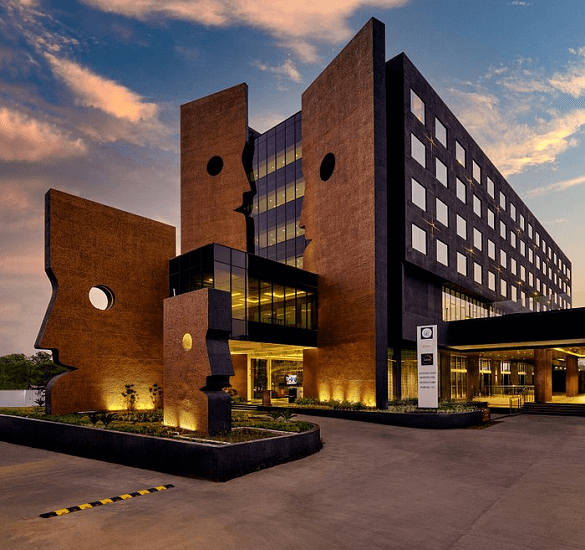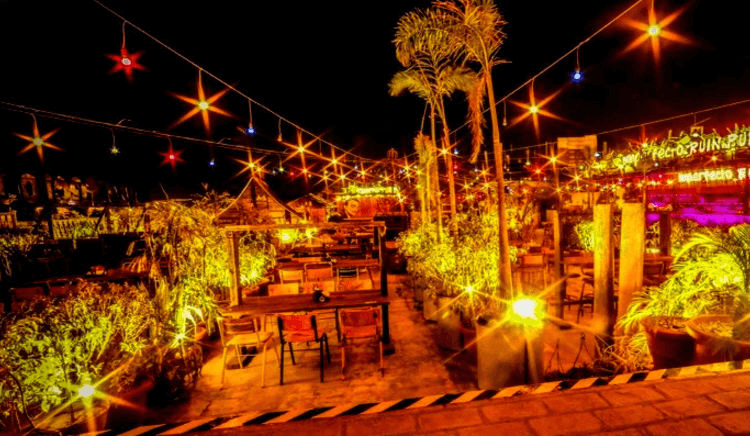Difference Between Hotels and Restaurants
Restaurants and Hotels are both businesses catering to the various needs of clients. The primary goal of the hotel is to provide accommodation, while the primary goal of restaurants is to serve food and drinks. This is the primary distinction between a restaurant and a hotel. Sometimes, a restaurant may be found in a hotel too.
What is a Hotel?

A hotel is a place that offers accommodation for a brief period of time. The facilities offered by hotels can vary based on the size and nature of the hotel. A smaller hotel might offer amenities such as a bed and storage (for clothes). However, luxurious hotels may offer amenities such as en-suite bathrooms and a pool, as well as child care, room services, pet care, recreational facilities and so on. Some hotels serve meals in the room itself.
The size of hotels varies, as do the facilities and prices. Here are some general categories of hotels which are classified based on these aspects. These are-
- Upscale luxury hotels- These are hotels that offer luxurious facilities, including full-service accommodations with on-site restaurants. They have high standards of professional and personal service. They are usually classified with at the very least four or five Diamond or Star statuses.
- Full-service hotels- Hotels that are full-service include full-sized luxury facilities that offer full-service accommodations and amenities.
- Boutique hotels- These are hotels that offer between 10 to 100 rooms. These are small hotels.
- Motels- These are tiny roadside hotels that are made for drivers. The rooms are generally located in small, compact blocks that have parking on the street directly in front of them.
- Inn- It is a structure in which travellers can find lodging as well as food and drinks. Inns are believed to be the ancestor of hotels.
What You Need to Know About a Hotel
- A hotel is a place that offers accommodation for a brief duration of time.
- Certain hotels offer meals as part of their stay.
- Hotels are classified according to star ratings based on the facilities and services that are offered.
- Hotels cannot function on their own. They require an establishment to be fully equipped with other services like conference rooms, laundry, room service and many more services, based on the classification of the hotel.
- The hotel is much more than a typical restaurant as it also provides accommodation facilities.
- Hotels offer facilities like an en-suite bathroom as well as bistros, gambling clubs, lounges, pools, conference rooms, bars, dining and room service, as well as childcare facilities.
- Hotels that have restaurant services typically provide all the main meals or provide complete meals (multiple meals).
- The hotel can boast a huge number of employees contrasted with a standalone restaurant.
- A hotel's owner is known as a hotelier.
What is a Restaurant?

A restaurant is where food and beverages are prepared and served to customers with the intention of obtaining money. Food is typically served and eaten in the restaurant; however, some restaurants provide takeaway or delivery services too.
Restaurants vary greatly in their appearance as well as the types of food they serve. The term "restaurant" is a term that can refer to everything from cheap fast-food outlets, as well as luxurious establishments. Restaurants can also be set up in different business locations, such as a hotel or shopping malls. Some restaurants serve all of the main meals, including breakfast and lunch, as well as dinner. Others may offer only one meal or perhaps two meals. Restaurants are also divided into various categories based on menu style techniques, cooking methods, and cost.
What You Need to Know About Restaurant
- A restaurant is a place that serves food and beverages to its customers.
- The meals are usually served and consumed on-premises; however, many restaurants provide takeaway or food delivery services.
- Restaurants are usually classified according to the cuisine or style of cooking the food, as well as the costs.
- A restaurant isn't as large in terms of space when compared with a hotel since it doesn't offer lodging services.
- A restaurant can be an independent business that serves drinks or food, or it can be part of an overall company like malls, hotels and so on.
- Restaurants may have facilities such as restrooms along with parking, lounges as well as a play space for children.
- Certain restaurants offer all the major meals, while other restaurants offer a single meal or perhaps two.
- A restaurant typically has a small number of employees in comparison to hotels.
- The owner of a restaurant is called a restaurateur.
A comparison table of a hotel and restaurant-
| BASIS OF COMPARISON |
HOTEL |
RESTAURANT |
| Description |
A hotel is a place that offers accommodation for a brief duration. |
A restaurant is a place that serves food and beverages to its customers. |
| Other Services Offered |
Certain hotels offer meals as part of their accommodation. |
Food is usually served and consumed on premises However, some restaurants provide take-away or food delivery service. |
| Classification |
Hotels are classified according to stars based on the amenities and services that are offered. |
Restaurants are typically classed based on the the cuisine or style of cooking the food, as well as the prices. |
| Size |
Hotel is bigger restaurant because it offers lodging facilities. A hotel may even have a restaurant inside it. |
A restaurant isn't as large in terms of size when it is compared to hotels as it does not provide accommodation services. |
| Independence |
Hotels cannot function on their own and require restaurants to be fully equipped with other amenities like conference rooms and laundry, room service and many more , based on the classification of the hotel. |
A restaurant could be an independent business that serves drinks or food or is one of the components of a businesses like malls, hotels, and so on. |
| Common Services |
Hotels offer facilities such as en-suite bathrooms, bistros, gambling clubs, swimming pools, lounge conference rooms, bars and restaurant and room service, as well as childcare. |
Restaurants may have facilities such as restrooms along with parking, lounges and even a play area for children. |
| Nature Of Meals |
Restaurant-friendly hotels typically provide all meals of the day or offer whole-course meals (multiple menus). |
Certain restaurants offer all the major meals, while others serve one and/or two meals. |
| Employees |
The hotel can boast a huge number of employees as compared to a restaurant that is a stand-alone establishment. |
Restaurants generally have less employees in comparison to hotels. |
| Owner |
The owner of a hotel is known as a hotelier. |
A restaurant's owner is often known as a restaurateur. |
|


 For Videos Join Our Youtube Channel: Join Now
For Videos Join Our Youtube Channel: Join Now









